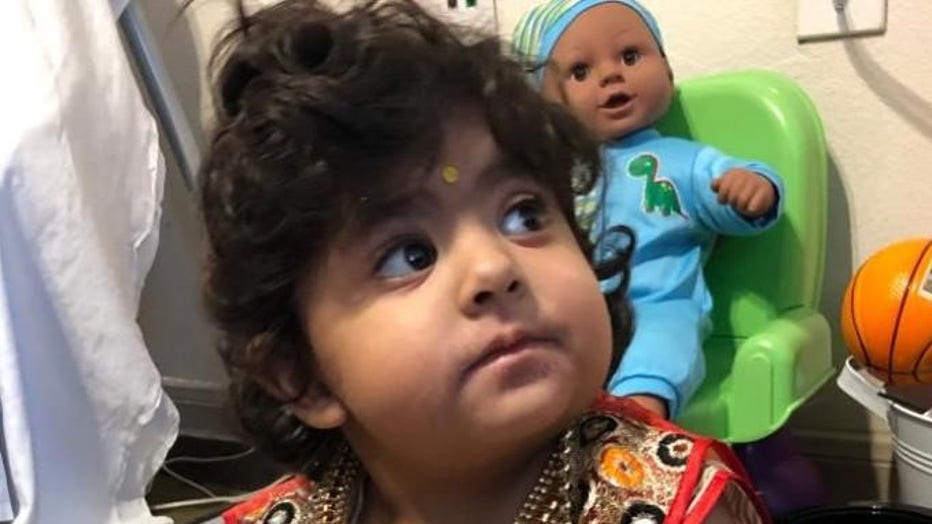2-year-old's family calling for bone marrow donors to register, praying for a match

Two-year-old Alesha Kajani has bone marrow failure, which means she can’t produce her own blood cells. With only 5% of blood cells remaining, her family is in desperate need to find a bone marrow match for their little girl and they are sending out an urgent call for people to join the bone marrow registry hoping that someone will be a match.
Every 3 minutes in the U.S., someone is diagnosed with a blood cancer. For many patients, a bone marrow transplant is the best chance for survival. While 30% of patients can find a matching donor in their families, 70%, nearly 12,000 people each year, must rely on a benevolent stranger to step up and donate.
Mallary Lattanze is a DKMS volunteer who is working with the Kajani family.
DKMS is an international nonprofit organization dedicated to the fight against blood cancer and blood disorders by: creating awareness, recruiting bone marrow donors to provide a second chance at life, raising funds to match donor registration costs, supporting the improvement of therapies through research, and supporting patients from day one of their diagnoses.
Mallary explains that Alesha’s Indian-Pakistani background makes it challenging to find a matching donor. Many minorities are incredibly underrepresented on the bone marrow registry, making it more difficult for kids like Alesha to find a matching donor. DKMS is calling on everyone of South Asian descent to please step up and register.
Registering Online is easy, secure, and only takes 5 minutes. Though the chances to be called as a donor are rare - 1 in 430 - if called, you are likely the patient's best match. Your decision can give hope and a second chance at life.
After registering, you have to swab your cheeks and send the kit back to DKMS. It is all free of costs.

